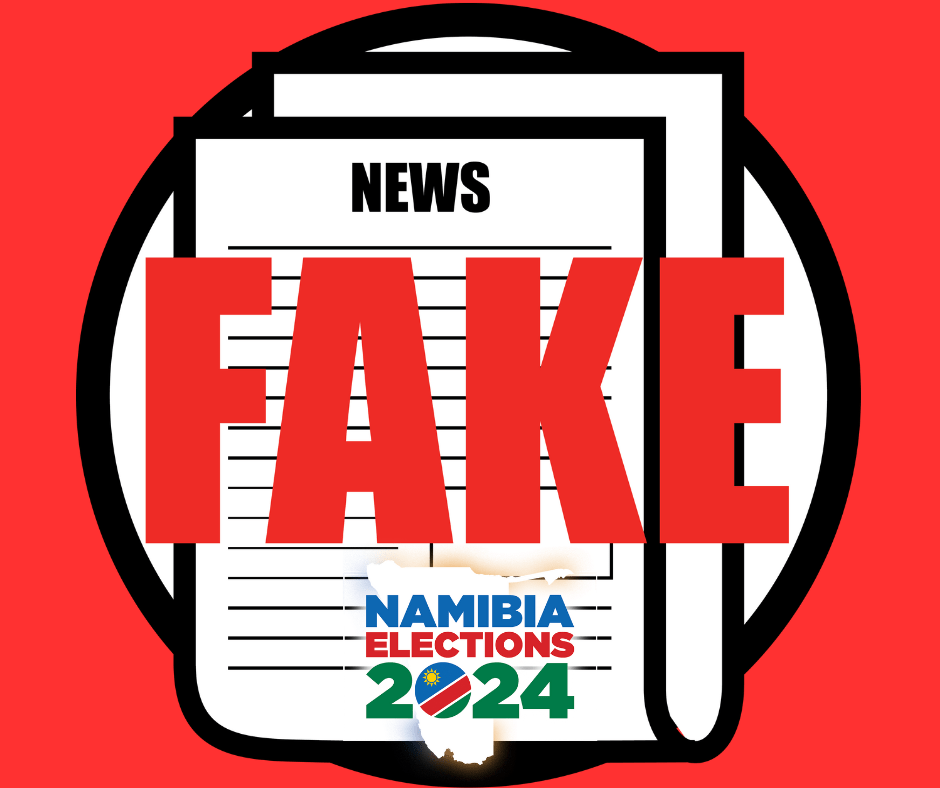IMAGE: Namibia Fact Check
Political lies and propaganda are set to flood social media spaces as we move closer to the late November 2024 elections
Namibia’s fast approaching 27 November 2024 parliamentary and presidential elections have become a lightning rod for election-related disinformation that is primarily being transmitted via social media and messaging platforms.
Following are some of the notable examples of political or electoral disinformation witnessed during October 2024.
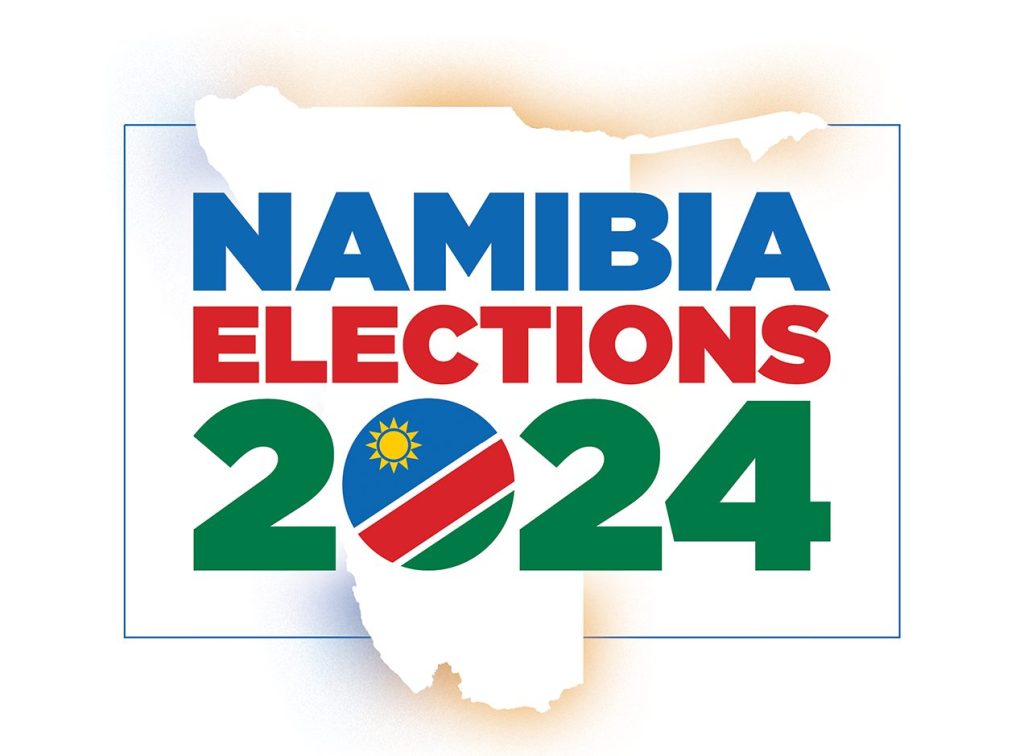
The fake Swapo letter
Early in October a letter appeared on social media and in WhatsApp groups purportedly showing that a senior Electoral Commission of Namibia (ECN) official was taking instructions from the ruling Swapo Party secretary general to ensure that the party wins the upcoming elections. The letter alleges that the ECN official would be paid N$2 million for ensuring a Swapo victory. An image of the letter (image below) was virally shared and “Forwarded many times” throughout the month.
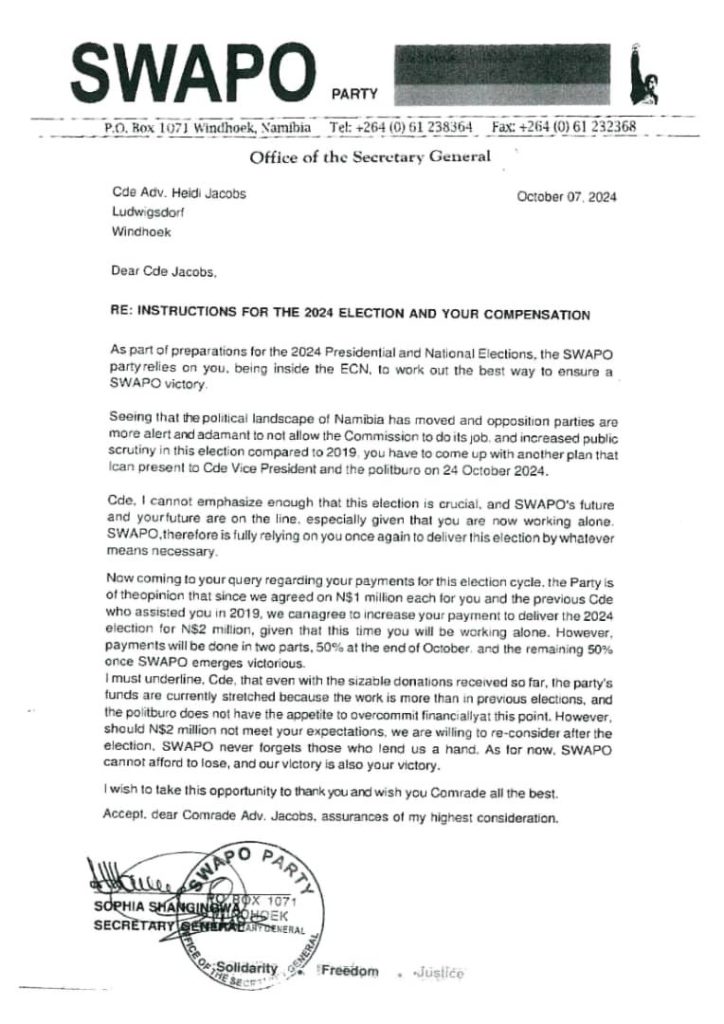
On 11 October the ECN issued a media release in which it stated: “We wish to categorically state that these allegations are not only malicious and baseless but are also intended to undermine the integrity and credibility of the Commission ahead of the upcoming 2024 November elections. The letter in circulation, which falsely implicates our senior official, appears to be a deliberate act of impersonation and misinformation.”
‘Deep Intelligence’ strikes
Since September 2024 an online note titled ‘Deep Intelligence’ has been circulating in WhatsApp groups and via social media. In September, when Namibia Fact Check first became aware of ‘Deep Intelligence’ it was because of a note (image below) that portrayed the Swapo Party candidate for the presidential election, Netumbo Nandi-Ndaitwah, as being a “former apartheid undercover agent” and a “co-founder” of the opposition Rally for Democracy and Progress (RDP). This note continued to circulate online in October 2024.
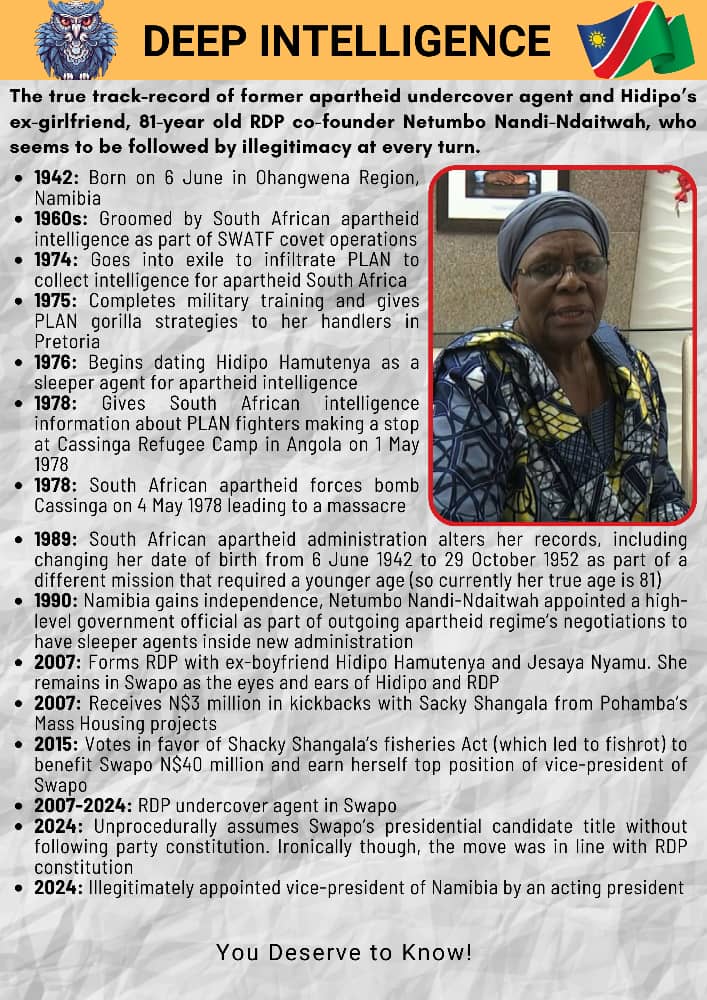
Another ‘Deep Intelligence’ note appeared in October. This one (image below) alleged that Netumbo Nandi-Ndaitwah and the Swapo Party were “busy selling the port of Walvis Bay to China, getting kickbacks in return”.
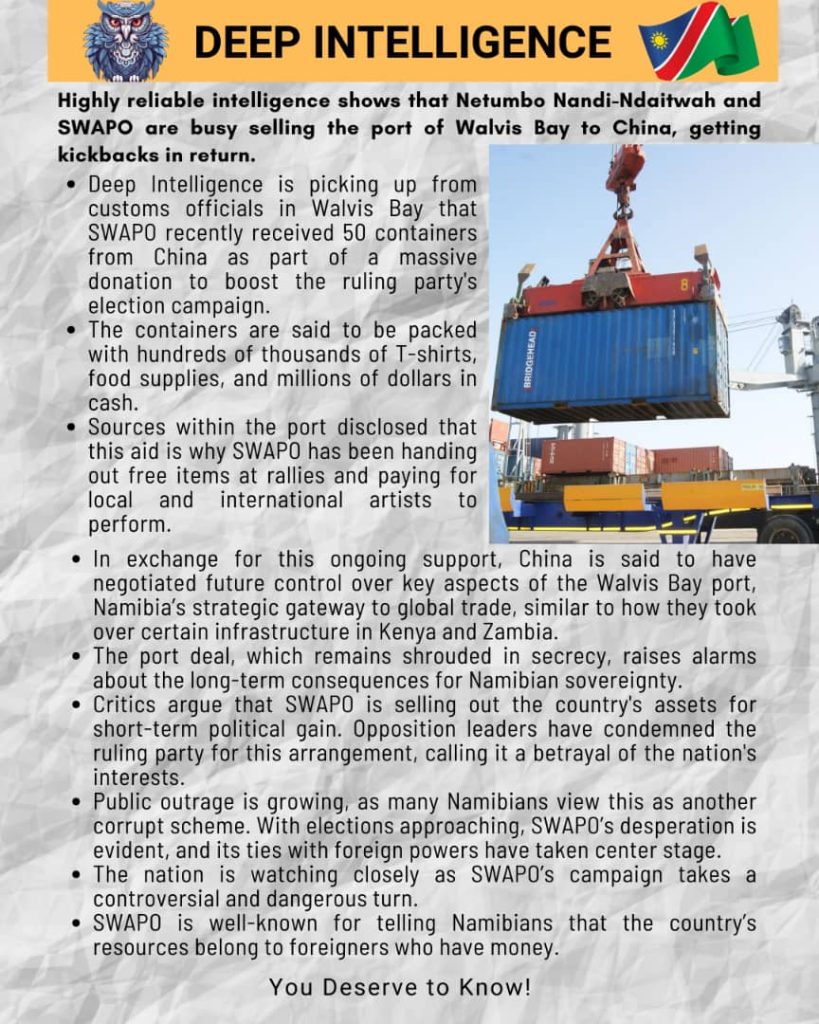
The fake Swartbooi audio
In mid-October an audio-clip appeared and went viral on social media purportedly of Landless Peoples Movement (LPM) leader Bernadus Swartbooi making derogatory and tribalistic statements about the leader of the Independent Patriots for Change (IPC), Panduleni Itula. The audio-clip was said to have been recorded in a bar or restaurant. The audio-clip, which was clearly meant to paint both opposition politicians in a negative light, was much shared and commented on (images below) through late October, with many posters pointing out that it was clearly not Swartbooi’s voice in the audio-clip. Nevertheless, on 21 October the LPM issued a statement distancing its leader from the audio-clip.
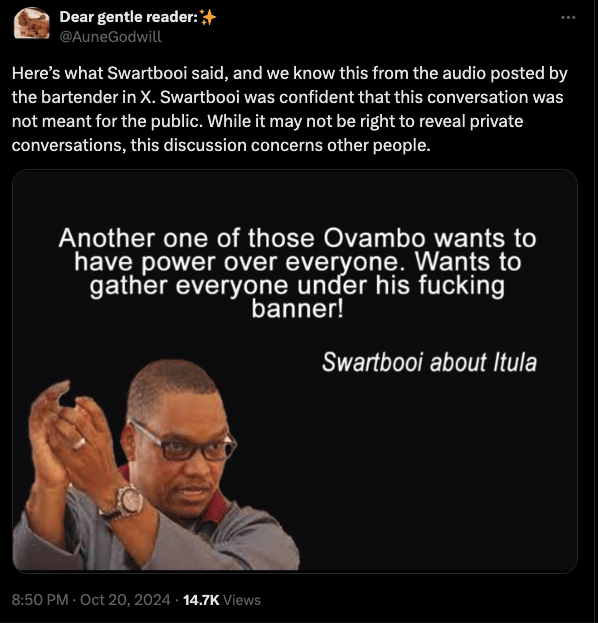
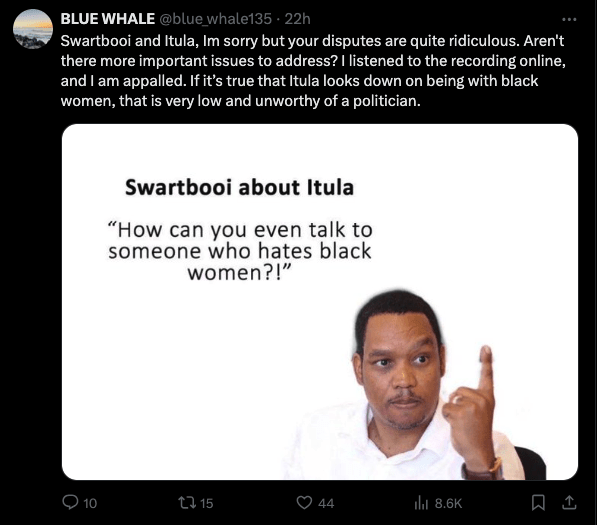
AI image of Nandi-Ndaitwah ‘collapse’
In late October various news media outlets reported that the ruling Swapo Party’s candidate for the presidential elections, Netumbo Nandi-Ndaitwah, had ‘collapsed’ at a party campaign rally in the Otjozondjupa Region. However, that Nandi-Ndaitwah had actually collapsed was never accurately established by the media. That said, in the days after the supposed ‘collapse’, an AI generated image (image below) supposedly depicting the Nandi-Ndaitwah ‘collapse’ appeared in social media spaces and was widely shared. The image was shared by some accounts with commentary on the health status of the ruling party presidential candidate. The image was clearly created to tap into concerns about the age and health frailties of Nandi-Ndaitwah.
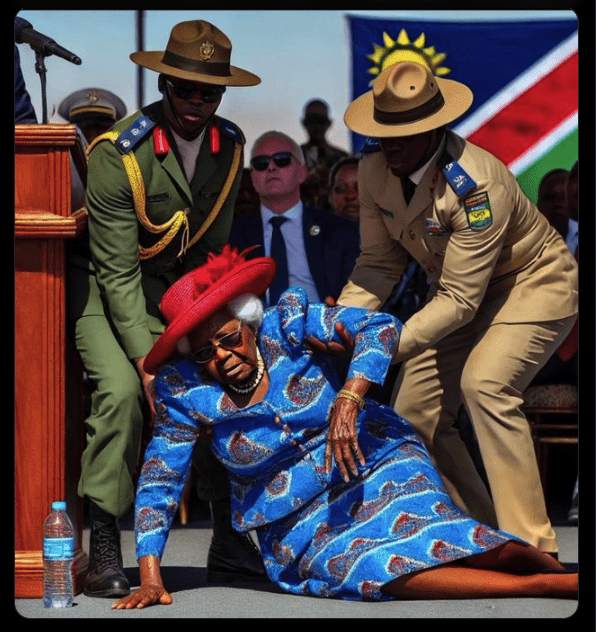
These are just some of the examples of political disinformation encountered in October 2024 and clearly pointing to disinformation creators experimenting with various tools and formats to generate political lies and propaganda. These examples are presented here as forewarning for what could come as the 27 November elections draw closer.

